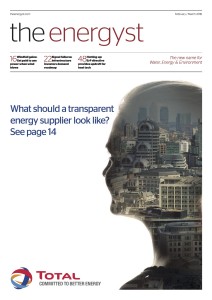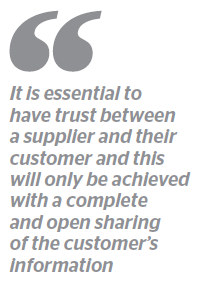Energy is often businesses’ second biggest spend after staff yet businesses are still unsure of how their energy bills are made up and often end up paying more than what they bargained for. Customers want
to receive a fully transparent contract from their energy supplier with no hidden charges and the reassurance of knowing that the price agreed
with the supplier is what they’ll pay at the end of each month.
Customers also want more control and flexibility over their energy contracts. They want to manage their energy consumption, how much
money they are spending and the amount of energy they are generating. Traditionally, customers have been reliant on their supplier to tell them what the best energy products are without any control over what is provided.
According to a survey in The Energyst’s Directors’ Report 2016, 80% of respondents believe energy has increased as a strategic focus. It may be that increased politicisation of energy issues is driving energy up the agenda. Impending cuts to renewable subsidies, changes to business energy taxes and thin generation margins may have had some impact and the arrival of the ESOS is also likely to have raised awareness of energy and energy efficiency matters.







